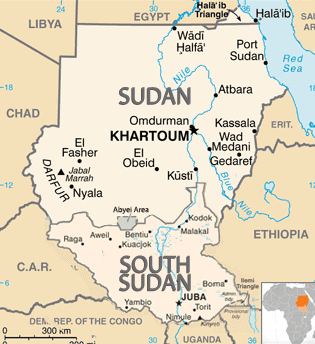Farming is the main livelihood for people in South Sudan. The United Nations has determined that 90% of all families in South Sudan depend on farming, fishing, and herding for their food and income needs. Due to the ongoing violence of a brutal civil war, the people of South Sudan have lost hope and many have fled their homes for refugee camps. Though these camps offer a degree of safety, they present further challenges to a people who simply desire a peaceful environment to live and care for their families. Raising Hope 150 is a SEA Partners’ project designed to reverse this trend by providing hope to the Murle people in Boma through farming.

Raising Hope 150 will not solve all the problems facing the people of South Sudan, but it does represent a second step in SEA Partners’ long-term strategy to sustain permanent food security for all the families in the Boma community. SEA Partners began operating a demonstration farm 7 years ago and have partnered with private donors, churches and the United Nations in training local farmers in the best practices of farming and agriculture development. 2017 was a banner year for crop production in Boma and in the words of Chief Lino, “This year, for the first time, my family will have enough food to last throughout the year”. What a marvelous story and proof that your prayers and support are having a huge impact in Boma. Thank you so much! Now is the time to move on to phase two.
 |
| The local chiefs of the area joined Director Henry Okumu with me in the village to thank us for the farming help. (Left to right: Henry, Chief Lopio, Chief Lino, and Donnie.) |
The highlights of phase two, Raising Hope 150, are as follows:
- We intend to raise $150,000 to increase the size and scope of the demonstration farm.
- Through this program we hope to purchase a truck and tractor so we can increase the area we farm and introduce mechanized farming to the community. With the truck we can transport excess produce to sell in other village markets creating a source of income for the Boma farmers.
- We would like to fence the entire farm with a natural fence. This is a thorny bush that grows thick and 6 feet tall to keep the animals out of the crops.
- A portion of the funding for Raising Hope 150 will be used to set up our Juba office. This is critically important as it will help us gain additional funding from other non-government organizations like the United Nations. There is a large amount of money available for development purposes, but these organizations simply don’t know about the work in Boma. An office and staff in Juba will provide us the opportunity to become known and thereby gain access to these funds.
 |
|
Chief Lino’s farm of cassava, peanuts and kale. It’s not in the picture but he also has corn, beans and sweet potatoes to harvest.
|
This is a critical time for farming in Boma. The second 2017 harvest will begin in late December with cultivation for the new year following in earnest during January. If we are going to implement Raising Hope 150in 2018, we need your help. Thanks to the generosity of First Presbyterian Church of Bethlehem through their McKnight Mission Scholarship Fund, we have been granted a $10,000 gift for this project. Praise the Lord! It’s a tremendous start, but we still need your help.
Please prayerfully consider giving an online gift to raise hope for the Murle in Boma. Your support will enable the local farmers to improve their lives, gain self-respect and to continue the progress they have already shown.
“For I know the plans I have for you”, declares the LORD, “plans to
prosper you and not to harm you, plans to give you hope and a future”. Jeremiah 29:11
Your support for these farmers in Boma will play a significant role in God’s desire for their future and hope. Will you support them?
May God bless you for your kindness.
Donnie Brake
President
PS. Raising Hope 150 will launch the phase of full scale farming development in South Sudan. Please give a gift to support these brave farmers who desperately want to provide food for their families.

